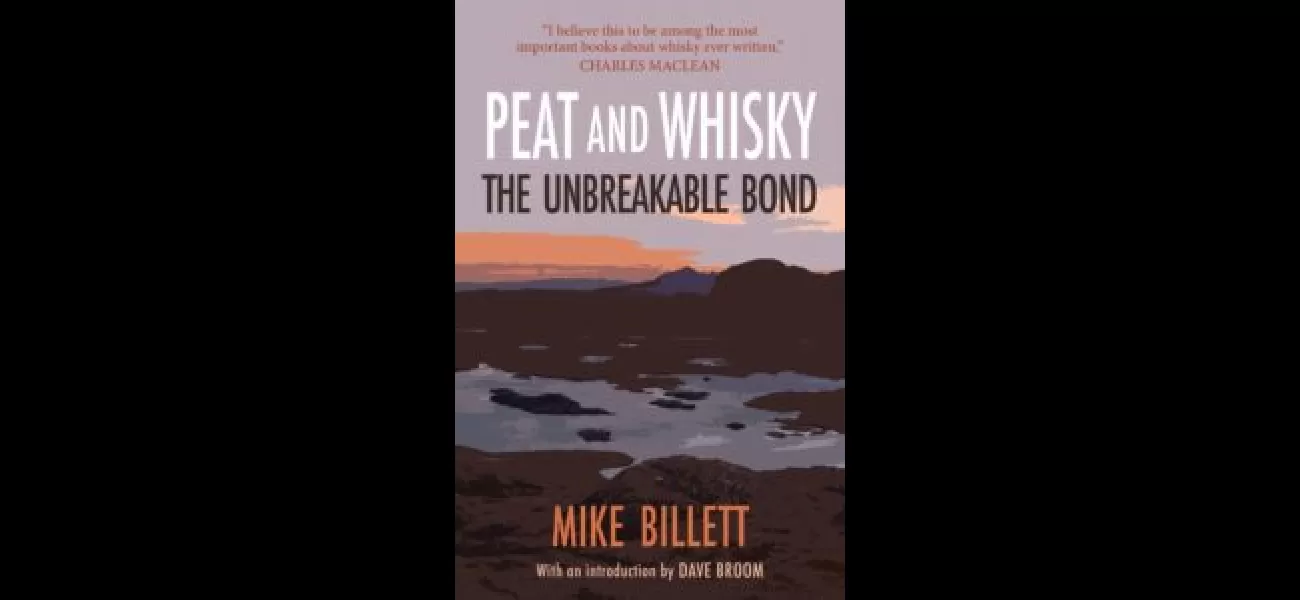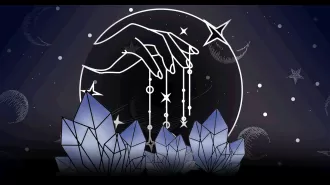Mike Billett's childhood love for animal books is described in The Good Books.
Mike Billett, a whisky expert, shares his love for reading at The National Library of Scotland, recalling his childhood favorite, Winnie The Pooh, and why Moby-Dick is a must-read.
April 15th 2024.

Meet Mike Billett, a man of many passions and talents. From being a renowned whisky connoisseur to a leading peatland scientist, Mike has a deep appreciation for literature and the natural world. In this interview, he shares his thoughts on his earliest reading memories, a book that he recommends to everyone, and his favorite place to read and think.
As a child, Mike was drawn to books about animals. One of his favorites was Winnie The Pooh by A.A. Milne, a charming tale about a carefree bear and his adventures in the forest. He also mentions Gerald Durrell's books, which were highly coveted by him and his siblings. However, his childhood bliss was disrupted by George Orwell's Animal Farm, a thought-provoking and powerful allegory about society and power dynamics.
When asked about a book that he recommends to everyone, Mike doesn't hesitate to mention Moby-Dick by Herman Melville. He describes it as a book that has everything. From adventure on the high seas to cultural and ethical diversity, and most importantly, human obsession and fallibility, Moby-Dick is a literary masterpiece. Mike emphasizes that the book is based on Melville's own experiences with whaling and cetacean natural history, adding to its authenticity and depth. He also reflects on the book's ending, a titanic battle between the hunter Ahab and the Great White Whale, which ultimately leads to the destruction of the whale ship Pequod. Mike sees this as a reckoning from the time the book was written, highlighting the timeless themes and messages of the story.
Moving on to the best books he has read in the last year, Mike mentions The Good Hope by William Heinesen and A Woman in the Polar Night by Christiane Ritter. The former is a historical fiction novel set in the Faroes in the late 17th century, exploring the forces of good and evil. Mike shares that he couldn't put the book down after a recent trip to the islands. The latter is a memoir of Christiane Ritter's experience overwintering in Svalbard with her fur-trapping husband in 1934. Mike praises the book for its themes of survival and joy, and admits to reading it twice. He also mentions a wine book called Foot Trodden: Portugal and the Wines Time Forgot, which celebrates terroir, artisans, and the country of Portugal, which is close to Mike's heart.
When asked about a book he didn't finish, Mike mentions Robert Macfarlane's Landmarks. He found the book to be more of an academic discourse than a captivating read. While he praises Macfarlane's previous work, Mountains of the Mind, he feels that Landmarks falls short in comparison. Mike attributes this to the book's subject matter, which is vast and endless, and Macfarlane's over-elaborate writing style, which can be a distraction from the fascinating content.
Mike also shares an author who has inspired him in his own writing. He describes Rob Cowan's Common Ground as a thought-provoking and original work of creative non-fiction. The book explores the clash between urban development and the natural world, and how different beings adapt and survive in this ever-changing landscape. Mike admires Cowan's ability to think outside the box and take readers on a journey through time and seasons. He particularly praises the chapter on swifts, which he finds to be beautifully written.
Finally, Mike reveals his favorite place to read and think - The National Library of Scotland in Edinburgh. He describes it as a treasure trove of literature and a haven for all who seek knowledge and inspiration. Despite the smell of coffee that greets visitors, Mike finds the library to be a quiet and peaceful place to read and reflect.
In addition to his literary interests, Mike is also a whisky connoisseur and a leading peatland scientist. His latest novel, Peat and Whisky: The Unbreakable Bond, is a testament to his deep understanding and passion for both subjects. Interested readers can find the book here. To read more about Mike's recommendations and other interesting articles, check out The Good Books. And don't forget to subscribe to Scottish Field for the latest issue.
As a child, Mike was drawn to books about animals. One of his favorites was Winnie The Pooh by A.A. Milne, a charming tale about a carefree bear and his adventures in the forest. He also mentions Gerald Durrell's books, which were highly coveted by him and his siblings. However, his childhood bliss was disrupted by George Orwell's Animal Farm, a thought-provoking and powerful allegory about society and power dynamics.
When asked about a book that he recommends to everyone, Mike doesn't hesitate to mention Moby-Dick by Herman Melville. He describes it as a book that has everything. From adventure on the high seas to cultural and ethical diversity, and most importantly, human obsession and fallibility, Moby-Dick is a literary masterpiece. Mike emphasizes that the book is based on Melville's own experiences with whaling and cetacean natural history, adding to its authenticity and depth. He also reflects on the book's ending, a titanic battle between the hunter Ahab and the Great White Whale, which ultimately leads to the destruction of the whale ship Pequod. Mike sees this as a reckoning from the time the book was written, highlighting the timeless themes and messages of the story.
Moving on to the best books he has read in the last year, Mike mentions The Good Hope by William Heinesen and A Woman in the Polar Night by Christiane Ritter. The former is a historical fiction novel set in the Faroes in the late 17th century, exploring the forces of good and evil. Mike shares that he couldn't put the book down after a recent trip to the islands. The latter is a memoir of Christiane Ritter's experience overwintering in Svalbard with her fur-trapping husband in 1934. Mike praises the book for its themes of survival and joy, and admits to reading it twice. He also mentions a wine book called Foot Trodden: Portugal and the Wines Time Forgot, which celebrates terroir, artisans, and the country of Portugal, which is close to Mike's heart.
When asked about a book he didn't finish, Mike mentions Robert Macfarlane's Landmarks. He found the book to be more of an academic discourse than a captivating read. While he praises Macfarlane's previous work, Mountains of the Mind, he feels that Landmarks falls short in comparison. Mike attributes this to the book's subject matter, which is vast and endless, and Macfarlane's over-elaborate writing style, which can be a distraction from the fascinating content.
Mike also shares an author who has inspired him in his own writing. He describes Rob Cowan's Common Ground as a thought-provoking and original work of creative non-fiction. The book explores the clash between urban development and the natural world, and how different beings adapt and survive in this ever-changing landscape. Mike admires Cowan's ability to think outside the box and take readers on a journey through time and seasons. He particularly praises the chapter on swifts, which he finds to be beautifully written.
Finally, Mike reveals his favorite place to read and think - The National Library of Scotland in Edinburgh. He describes it as a treasure trove of literature and a haven for all who seek knowledge and inspiration. Despite the smell of coffee that greets visitors, Mike finds the library to be a quiet and peaceful place to read and reflect.
In addition to his literary interests, Mike is also a whisky connoisseur and a leading peatland scientist. His latest novel, Peat and Whisky: The Unbreakable Bond, is a testament to his deep understanding and passion for both subjects. Interested readers can find the book here. To read more about Mike's recommendations and other interesting articles, check out The Good Books. And don't forget to subscribe to Scottish Field for the latest issue.
[This article has been trending online recently and has been generated with AI. Your feed is customized.]
[Generative AI is experimental.]
0
0
Submit Comment





